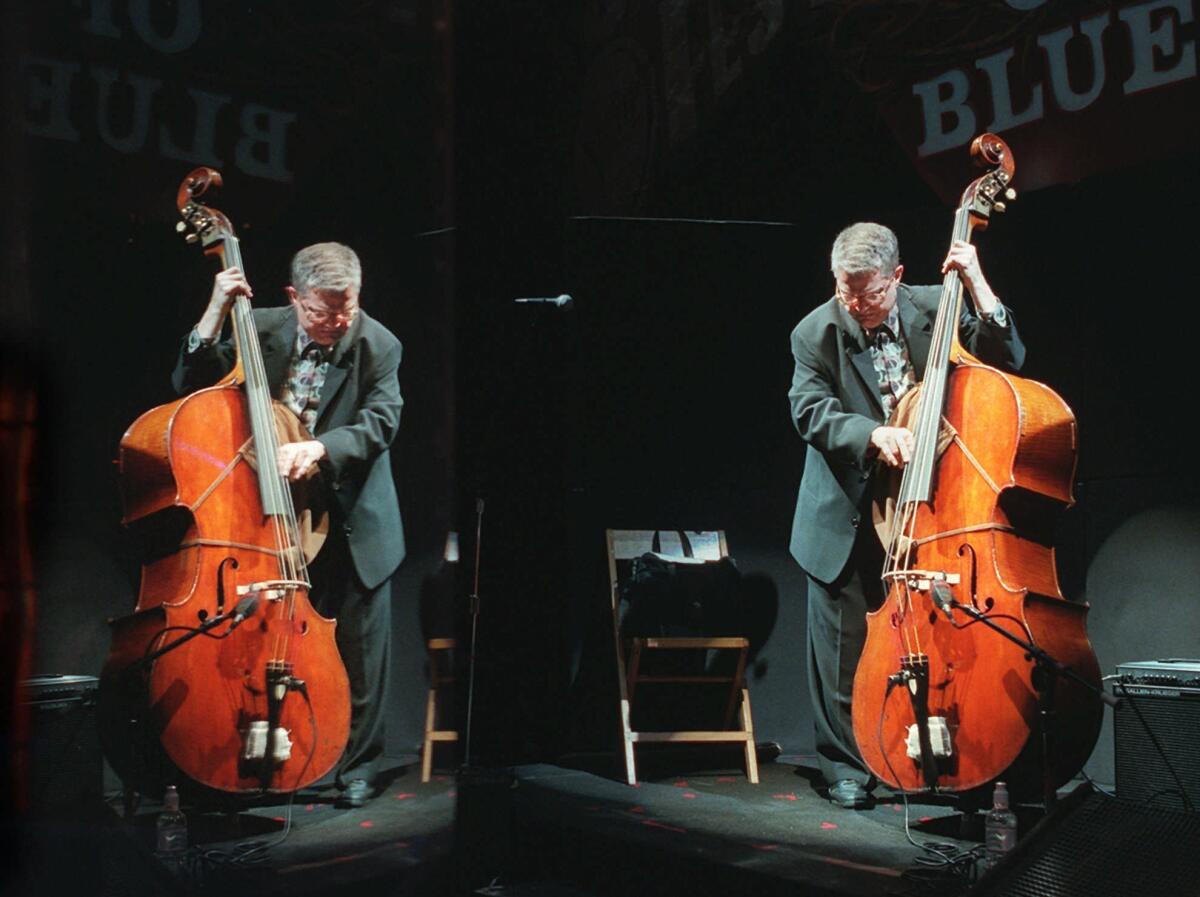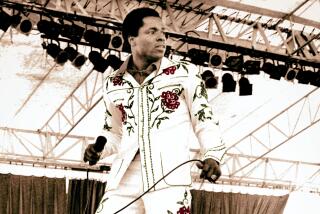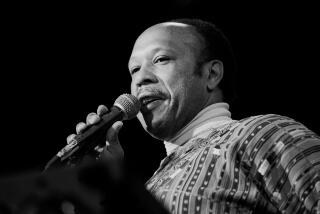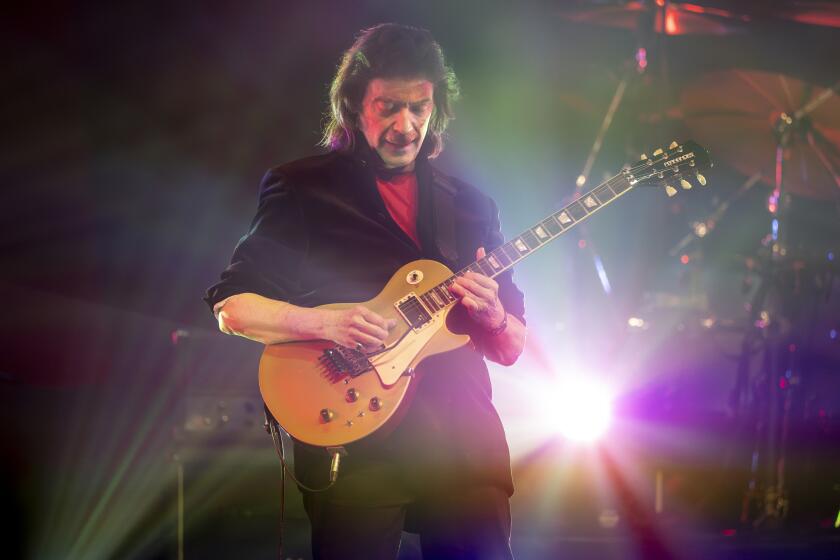Celebrating Charlie Haden via his version of ‘Wayfaring Stranger’

In the later years of Charlie Haden’s lauded professional life, long after he’d helped reconfigure jazz as part of Ornette Coleman’s group, the bassist, composer, longtime Angeleno and patriarch of one of the city’s most accomplished musical families, recorded an album of standards and instrumental interludes called “The Art of the Song.”
Released with his long-running group, the Charlie Haden Quartet West, the 1999 album is an outlier among his work, a paean to classic pieces by composers including Leonard Bernstein, Jerome Kern, Jimmy Van Heusen and Maurice Revel. Bursting with strings and floating arrangements courtesy of a chamber orchestra, “The Art of the Song” isn’t necessarily the most representative of Haden’s output, but it offers its own brand of softly lit thrills. (Times jazz critic Chris Barton will have a full appreciation in the coming days.)
The final song is a version of the classic folk tune “The Wayfaring Stranger,” a centuries-old hymn that’s had its own fascinating life. Over the decades it’s been recorded by artists including Jack White, Burl Ives and Emmylou Harris. Recently young Brit folkie Ed Sheeran covered it, as did countryman Jamie Woon. Gloriously pliable due to it’s haunting melody and words of sublime comfort, it’s a difficult song to screw up.
As delivered by Haden on “The Art of the Song,” “Wayfaring” is particularly luminous. Sung by the bassist in a breezy tone suggestive of Chet Baker but with a touch of grit, the rendition is one I return to over and over again, and often put on mixes for friends.
“I am a poor, wayfaring stranger roaming through this world of woe / Yet there’s not sickness, toil or danger / In that bright world to which I go,” sings Haden in the song’s first line, one that follows a soul’s journey on the road to the afterlife. “I’m going home to see my father, I’m going there no more to roam.”
A man lauded for many accomplishments, Haden wasn’t known for his singing, and seldom presented himself as a vocalist for a reason. On the recording he struggles to hold the notes -- polio as a child damaged his vocal cords -- but he hits them, traces the melody like a tightrope walker one slip away from retirement. It’s that very essence that makes his rendition so affecting. His phrasing is graceful, at peace.
Haden sings of “that bright world to which I go,” a place where his mother and father already reside. A journeyman done with his travels, the narrator acknowledges the difficult path that will take him there, one filled with dark clouds, his way “rough and steep,” but he has faith that “golden fields lie out before me.”
Sometimes too much vocal perfection so lifts a song as to muddle its meaning. The lines become more a feat of throat than spirit. What’s so affecting about Haden’s take on “Wayfaring Stranger” is that’s it’s delivered in a mortal’s voice, one pushed toward expression not by ego or purity of tone, but by urgency. It’s an essence that Haden captured throughout his career.
Follow Randall Roberts on Twitter: @liledit
More to Read
The biggest entertainment stories
Get our big stories about Hollywood, film, television, music, arts, culture and more right in your inbox as soon as they publish.
You may occasionally receive promotional content from the Los Angeles Times.







